Anahí Jorge, 23, works for a lithium extraction company in Argentina, earning four times the salary of a local government worker in her village of Susques.
And while she welcomes the income of about US$1,700 per month – a fortune for most in economic-crisis-riddled Argentina – she laments the impact on critical water resources in her town and wider Jujuy Province.
"Lithium is good and bad at the same time. The water issue is harmful to us,but it’s good for the people who are working today," she explained in an interview.
Lithium is a critical ingredient in electric car batteries and crucial for the global shift away from fossil fuels.
But the methods to extract it from salt flats demand a large amount of water, a resource lacking in high plateaux.
There are growing concerns about the impact on groundwater sources in regions already prone to extended droughts.
Extraction requires millions of litres of water per plant per day.
Susques, located 3,800 metres above sea level and with a population of fewer than 4,000 people, is one of those closest settlements to the Olaroz Salt Flat, which hosts two of Argentina's four lithium production plants: Sales de Jujuy and Exar.
With its neighbours Chile and Bolivia, Argentina forms Latin America's so-called "lithium triangle," where the metal nicknamed "white gold" is found in quantities larger than anywhere else on Earth.
About 56 percent of the world's 89 million tons of identified lithium resources are found in the region, according to the US Geological Survey (USGS).
In 2023, Argentina was the world's fourth-biggest producer of the metal, behind Australia, Chile and China, according to data from the USGS.
In a country where nearly half the population lives below the poverty line, environmental concerns can take a backseat to more immediate needs.
“It’s very difficult to say no” to the lithium boon, said Jorge.
Before the arrival of the plant, she recounted, young women like herself had no option but to move to the provincial capital to work as domestic servants for a pittance.
'Nowhere to go'
Between the adobe and mud houses of Susques, buildings of concrete and hollow brick have started to appear as the local economy has seen some money trickle down from the lithium boom.
The community, though, still lacks adequate sewage systems or gas-pipe infrastructure.
Some residents, many of them descendants of indigenous Quechua or Qulla communities, don uniforms with reflective tape provided by the companies.
Some have worked in the mining companies for years, and after making a profit, have started their own businesses: transport for mining staff and small hotels.
Susques town representative Benjamín Vázquez says the majority of the local population works in lithium.
“Sixty percent of the population works in mining,” said Vázquez, 41, a member of the Susques municipal commission.
He highlighted that the transformation has had no impact “on the community’s infrastructure” such as sewers or gas pipes.
Political scientist Melisa Argento, who specialises in the environment, considers that mining activity sparks “inter-community conflicts” between the towns where it is developed and those who are left aside.
Argento says “intra-community” conflicts also erupt between inhabitants who get a job working for the lithium firms and those who do not.
Working for these companies is not always a stable prospect. The price of a ton of lithium dropped from nearly US$70,000 in 2022 to just over US$12,000 this year, the kind of dramatic fluctuation that brings mass job losses.
“Populations are linked to the ups and downs of the international market,” said Argento.
"Most of the guys here say: 'I'll finish secondary school and go work in mining'," said 19-year-old Camila Cruz, who lives in Susques and studies medicine online.
“They don’t realise that mining is not a job that's going to last forever. You’ll make money but once it’s over, if you haven’t studied anything, you’ll have nowhere to go," she pointed out.
'Major impacts'
Unlike in Australia – which extracts the metal from rock – in South America it is derived from salars, or salt flats, where saltwater containing lithium is brought from underground briny lakes to the surface to evaporate.
At projects such as Olaroz, between one and two million litres of brine water evaporate for every ton of lithium, with another 140,000 litres of fresh water needed to clean the extracted metal, according to Argentina's CEMA Chamber of Environmental Entrepreneurs.
“I’m from the countryside and there’s no water,” said 59-year-old Susques resident Natividad Bautista Sarapura, as she cooked llama soup in the courtyard of her house.
“Before you could get water two or three metres down, now [you have to look] deeper all the time," she commented.
Cruz too is also worried about the use of water: “Our grandparents have their field near the mining company, and once they export the lithium, they leave a desert behind," she stated.
In its 2024 World Water Development Report 2024, the United Nations said lithium extraction from salt flats "has major impacts on groundwater and the lives of local communities, as well as on the environment."
“Nowadays the exact amount of water used is unknown, there are no effective controls,” Vázquez pointed out.
French mining group Eramet and China's Tsingshan recently inaugurated a new lithium production plant in Argentina.
They said it will use a less-damaging "direct extraction method" to produce up to 24,000 tons of battery-grade lithium carbonate per year at full capacity – enough for 600,000 electric vehicle batteries.
“The mining company won’t last forever,” reflected Sarapura, who raises livestock as a subsistence farmer. “If you respect our Pachamama [“Mother Earth”], we’ll have enough for all our lives.”
– TIMES/AFP
by Magali Cervantes & Tomás Viola, AFP






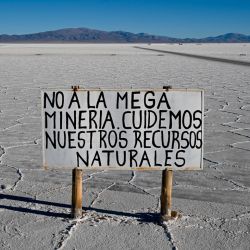
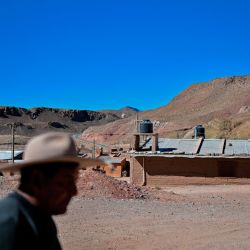
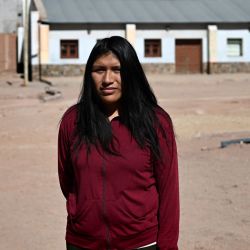
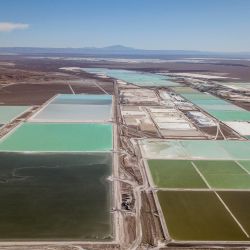
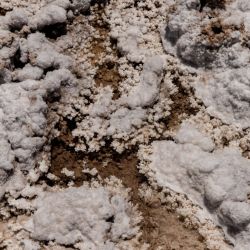
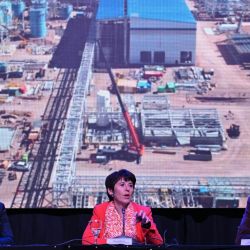











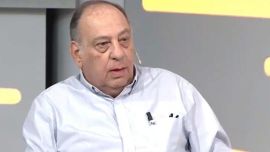


Comments